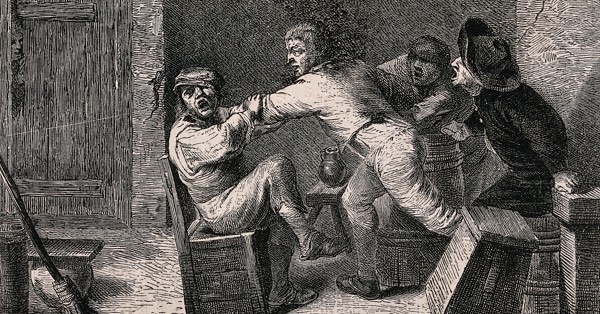Talktreaty and I are in trouble again. We can’t seem to help ourselves. This time we’re the inadvertent cause of a communications policy meltdown – and yes, in case you’re wondering, that is bad news.
The problem is this – the Talk Treaty project is about encouraging people to talk about – well – the Treaty of Waitangi. But not everybody talks nicely about the Treaty. Conversations can quickly descend into increasingly ugly personal attacks. What do you do when (like us) you’re hosting those conversations online? Do you turn a blind eye (we tried). Do you ban the bad-mouths (we dared). Do you respond to your critics in kind (we’re not perfect, so that’s a ‘sometimes’). But do we stop the conversation? That’s what we found ourselves grappling with this week.
The Treaty of Waitangi is not an easy thing to talk about. It’s hard to keep track of all the things that are being done in the name of the Treaty. And it’s hard to understand why it is being so widely applied – in education, in health, in local planning, even, it seems, in foreign policy. So people feel they don’t know enough about the Treaty and are unwilling to speak up for fear of exposing their ‘ignorance’. But it is more complicated than that too.
Unlike other topics there is often no right or wrong answer when it comes to the Treaty. A lot of what is being done reflects somebody’s ethical judgment – about what seems fair or reasonable, and in the case of the courts, what the judge thinks other people think is fair and reasonable and will accept without too much fuss (judges have to read the ethical weather just as politicians do). So even if you do know what is being done with respect to the Treaty, and why, you may still quite reasonably disagree because you happen to have a different ethical position. This, is in a nutshell, was what divided our online combatants recently.
When there is no clear right or wrong answer we can’t simply defer to an expert armed with non-refutable evidence and base our decision on that. We need to come up with a different way to make a decision. Invariably it is going to involve debate but clearly we need to be able to move beyond that to actually make a decision too. In the case of the Treaty there are a lot of these types of problematic decisions for New Zealand to make – how political power should be allocated and exercised is a key one coming up. Should Maori as a group continue to have political privilege and, if not, what needs to be done to make sure that’s no longer necessary?
There is a lot of international evidence (1) which suggests that when ethical positions vary, or when there is no clear right answer for another reason, people are capable of coming to decisions (without blows), but it takes hard work. The evidence also suggests bringing the parties face-to-face is likely to be the most fruitful approach. Our initial experience with Talktreaty blogs on Garethsworld.com is consistent with that – it appears that unfettered online debates are a poor substitute for face-to-face encounters. But just to be sure, we’ll do our best to supervise online slug-fests a little bit longer yet.
Talktreaty is a collaborative video project involving some of New Zealand’s most well-known personalities talking openly about identity, cross-cultural differences, disadvantage, discrimination, the Treaty, the constitution and moving forward. www.talktreaty.org.nz
1 Innes, Judith E. and David E. Booher (2005) Reframing Public Participation: Strategies for the 21st Century. Institute of Urban and Regional Development, Berkeley.

